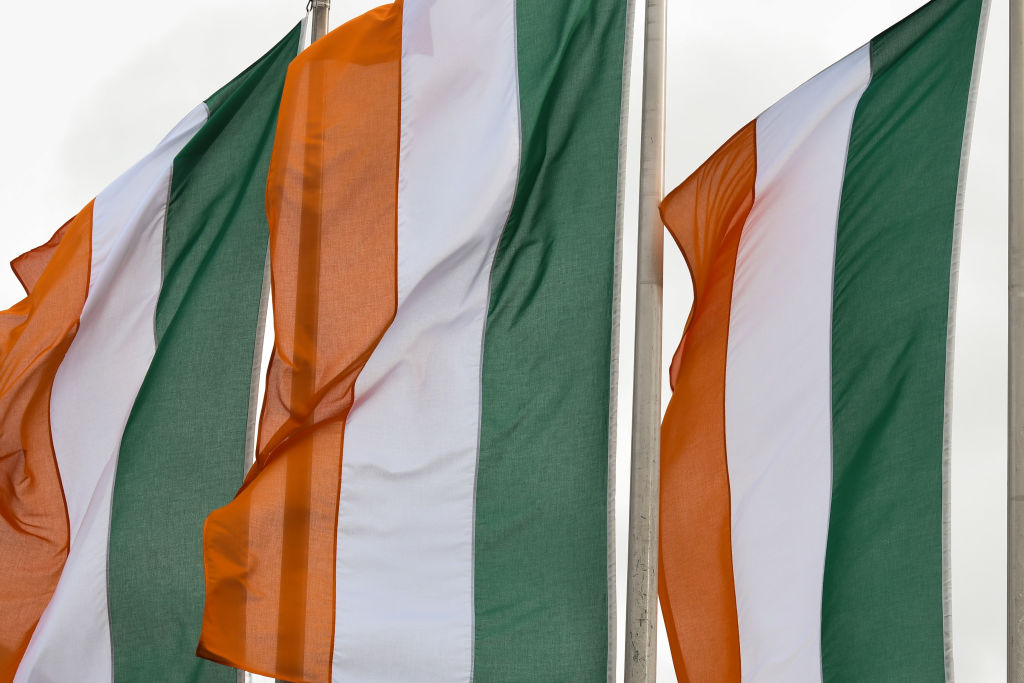Minimum alcohol pricing: has Scottish government been scuppered?
European court rules measure is illegal if same benefit can be derived from tax rises

A free daily email with the biggest news stories of the day – and the best features from TheWeek.com
You are now subscribed
Your newsletter sign-up was successful
The Scottish government has been dealt a blow over one its flagship policies by the European Court of Justice, which has ruled minimum alcohol pricing could be anti-competitive and illegal.
What does the ruling mean - and can the government still go ahead with the plans?
What has happened?
The Week
Escape your echo chamber. Get the facts behind the news, plus analysis from multiple perspectives.

Sign up for The Week's Free Newsletters
From our morning news briefing to a weekly Good News Newsletter, get the best of The Week delivered directly to your inbox.
From our morning news briefing to a weekly Good News Newsletter, get the best of The Week delivered directly to your inbox.
Put simply, the European court has thrown a spanner in the works of plans to introduce a minimum price for each unit of alcohol north of the border, which has been the subject of a protected legal battle since it was approved by Holyrood three years ago.
The judges said that denying firms the right to set their own prices could be "restrictive" to free trade, the Financial Times notes, and that it would be "illegal if tax rises could be used instead".
What was the government planning?
A minimum unit price of 50 pence, which academic studies reckon is the best way to target the cheap, high-alcohol drinks that are frequently abused by problem drinkers.
A free daily email with the biggest news stories of the day – and the best features from TheWeek.com
The plans were approved by an overwhelming majority of 86 to one in 2012, but since then have been the subject of a protected legal challenge led by the Scottish Whiskey Association that is backed by among others, nine EU member states, including France and Spain.
Has the ruling killed the policy?
No. The court has said that a minimum price would ordinarily be illegal in the European free market, but that it can be justified on health grounds if it is proportionate.
However, the government would need to prove it cannot achieve the same result by tax rises, which "would still allow retailers to set their own prices, and compete against each other". The ruling has been passed back to Edinburgh's Court of Session for a final decision.
What are the sides saying?
On the pro-policy side of the debate, there is caution from ministers but some tempered celebration from campaign groups. Eric Carlin, director of Scottish Health Action on Alcohol Problems, said the ruling "confirmed that minimum unit pricing… did not in itself contravene EU law".
Of course, on the other side of the debate there is similar positivity. David Frost, chief executive of the SWA, said the court "has confirmed that minimum unit pricing is a restriction on trade, and that it is illegal to choose [it] where there are less restrictive ways of achieving the same end."
For a more balanced opinion, the FT spoke to Graeme Young of the law firm CMS. He said the ECJ had set a “high hurdle” for Scottish judges and that the parameters on which they must base the decision are "heavily weighted against minimum pricing being an acceptable measure."
How does this affect the UK?
That's unclear, but there is certainly a context here. The Guardian notes the Scottish government does not have control over alcohol taxation, which is a matter for the UK government.
Whether this simply means the government has a stronger argument for minimum pricing – that tax rises aren't a viable option – or whether this simply becomes another bone of contention for independence-seeking nationalists, is yet to be seen.
Will the Scottish court ruling be the end of the matter?
Doubtful. The decision could still be appealed to the UK Supreme Court - and given the strong feelings on either side it is unlikely the loser will be willing to give up without trying every avenue.
-
 The Gallivant: style and charm steps from Camber Sands
The Gallivant: style and charm steps from Camber SandsThe Week Recommends Nestled behind the dunes, this luxury hotel is a great place to hunker down and get cosy
-
 The President’s Cake: ‘sweet tragedy’ about a little girl on a baking mission in Iraq
The President’s Cake: ‘sweet tragedy’ about a little girl on a baking mission in IraqThe Week Recommends Charming debut from Hasan Hadi is filled with ‘vivid characters’
-
 Kia EV4: a ‘terrifically comfy’ electric car
Kia EV4: a ‘terrifically comfy’ electric carThe Week Recommends The family-friendly vehicle has ‘plush seats’ and generous space
-
 Tariffs have American whiskey distillers on the rocks
Tariffs have American whiskey distillers on the rocksIn the Spotlight Jim Beam is the latest brand to feel the pain
-
 Is this the end of the big night out?
Is this the end of the big night out?Talking Point Bar closures and Gen Z teetotallers threaten 'extinction' for 'messy nights on the town'
-
 The road to a second Scottish independence referendum
The road to a second Scottish independence referendumfeature Nicola Sturgeon launched her latest bid for Scottish independence last week
-
 What Scotland can learn from Irish independence
What Scotland can learn from Irish independencefeature Economists predict Scottish transition would fail to curb increasing interest rates and inequality
-
 Dogs barred from all Wetherspoons pubs
Dogs barred from all Wetherspoons pubsSpeed Read The UK’s biggest pub chain has said the animals are ‘unpredictable’ and frighten young children
-
 CO2 shortage: crumpets the latest British staple to be affected
CO2 shortage: crumpets the latest British staple to be affectedSpeed Read Warburtons becomes another casualty of the carbonation crisis
-
 Scottish independence: Budget deficit raises £13bn question
Scottish independence: Budget deficit raises £13bn questionSpeed Read A massive black hole in the Scottish finances has been seized upon by unionists
-
 Five of the best reasons for calling in sick
Five of the best reasons for calling in sickIn Depth From obstructive cows to devastating darts, wannabe absentees can be creative